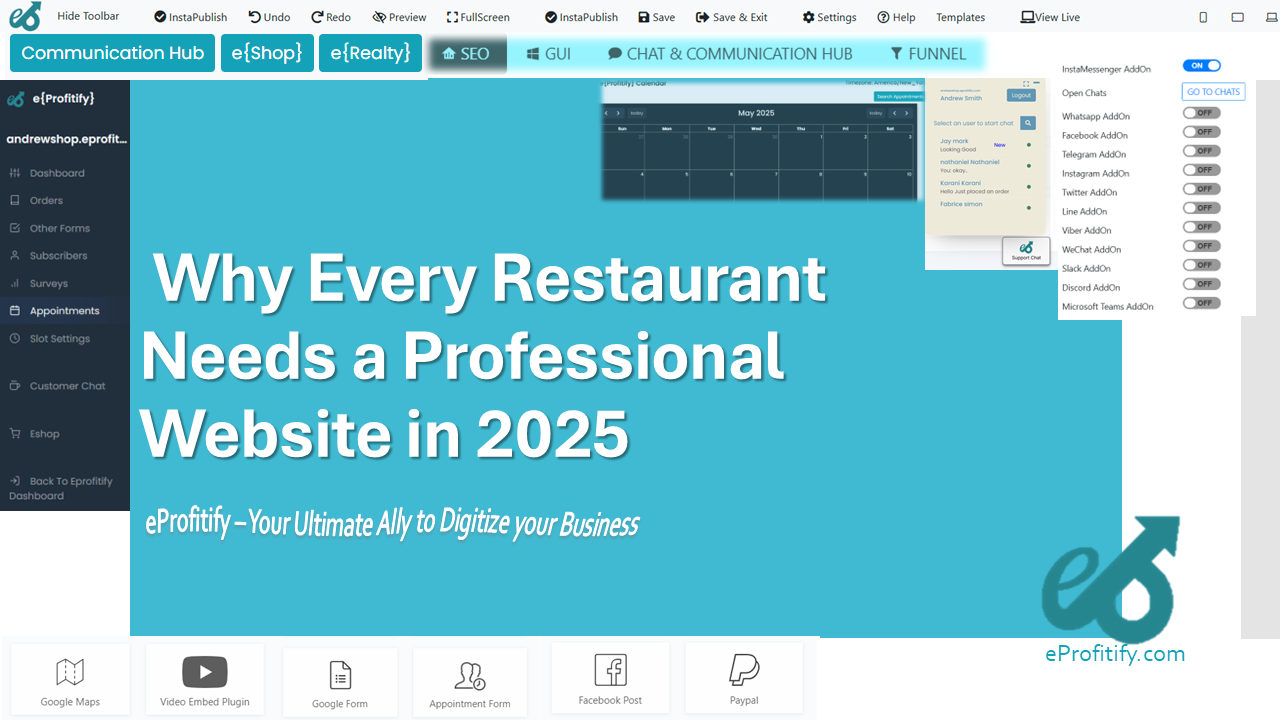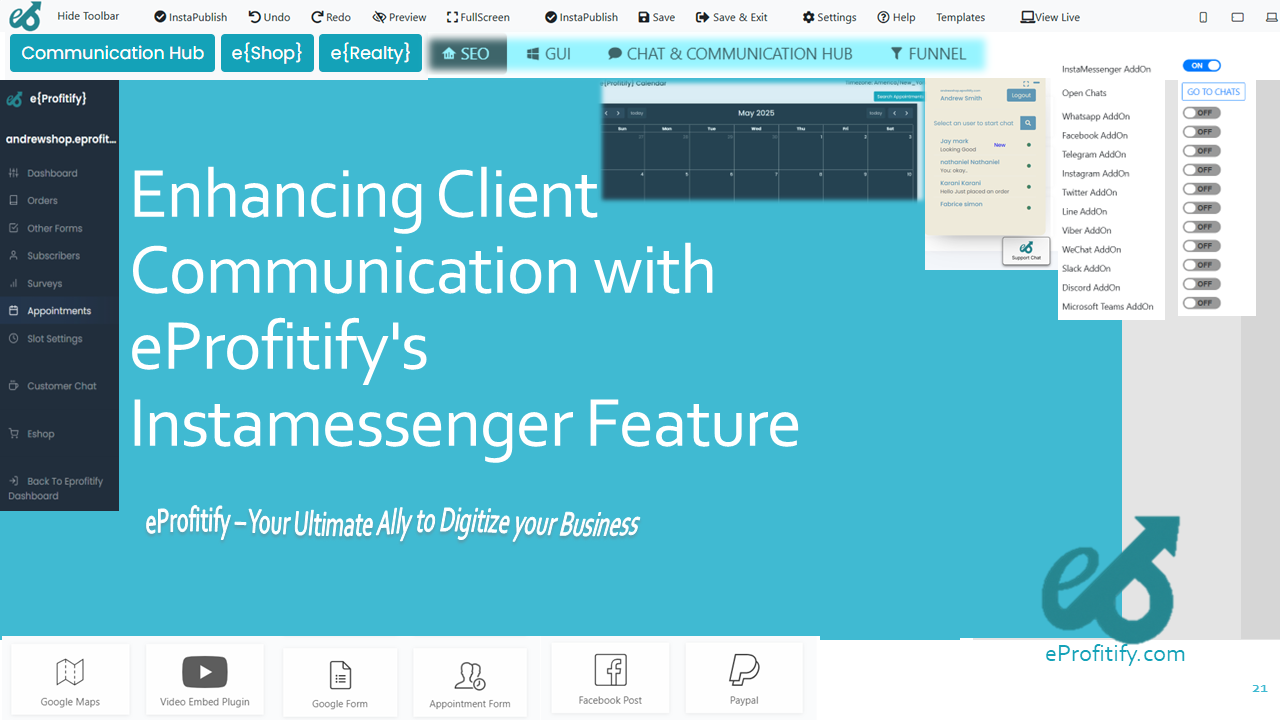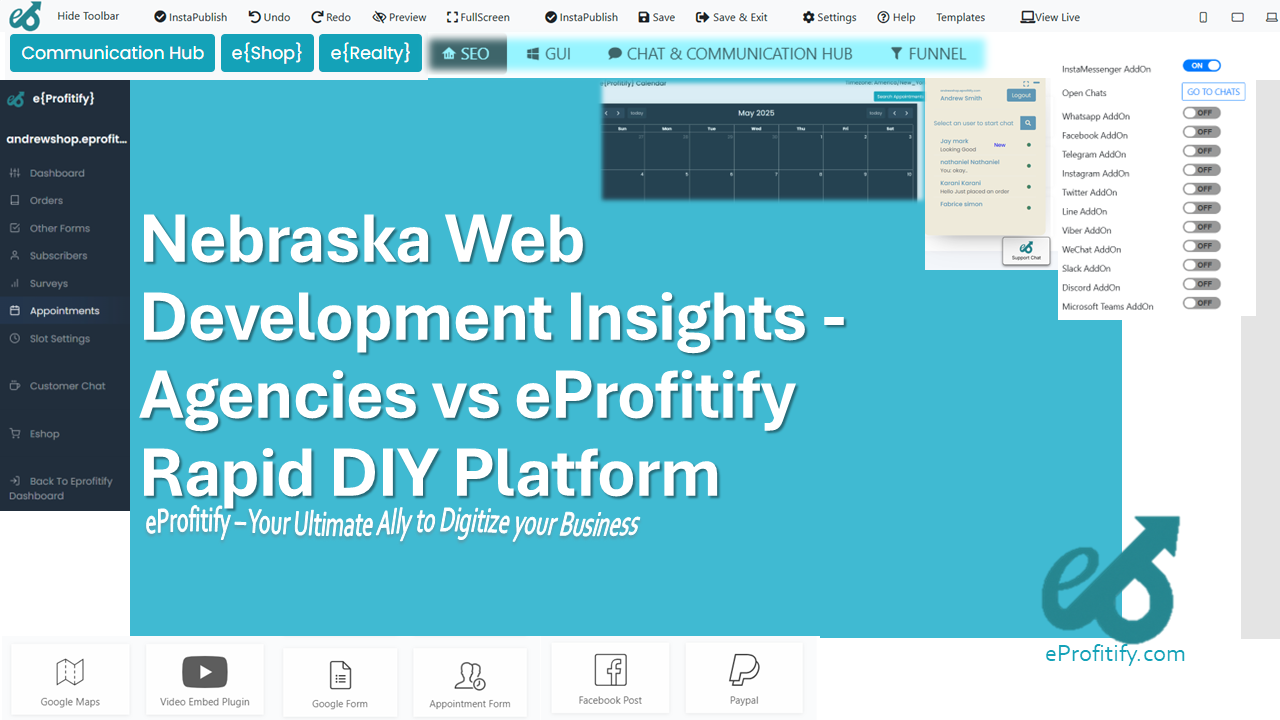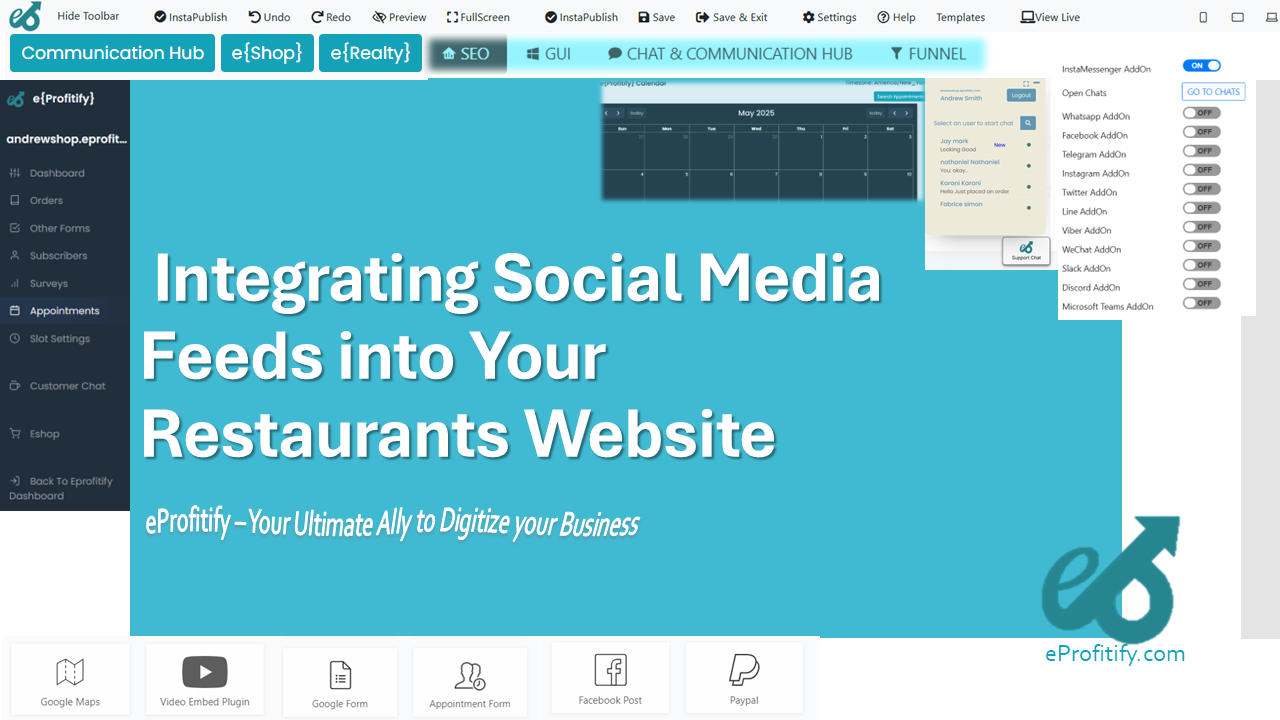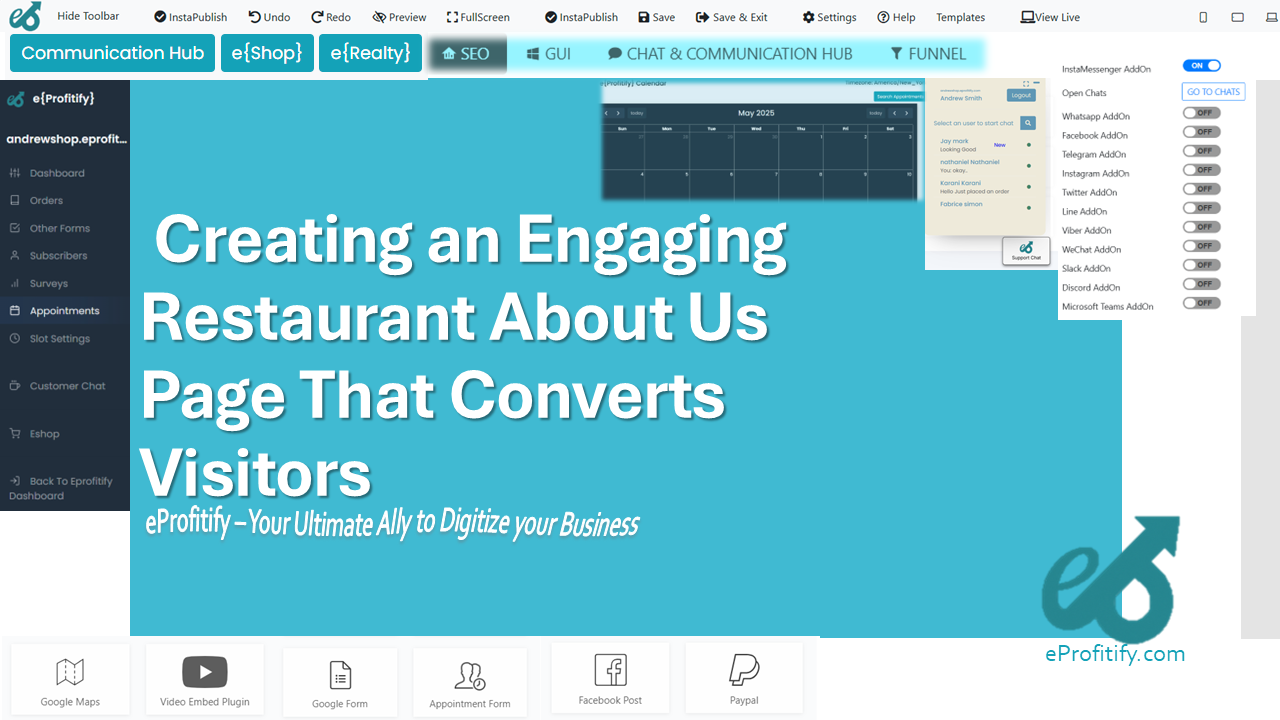The Ultimate Guide to Licensing and Permits for Food Trucks
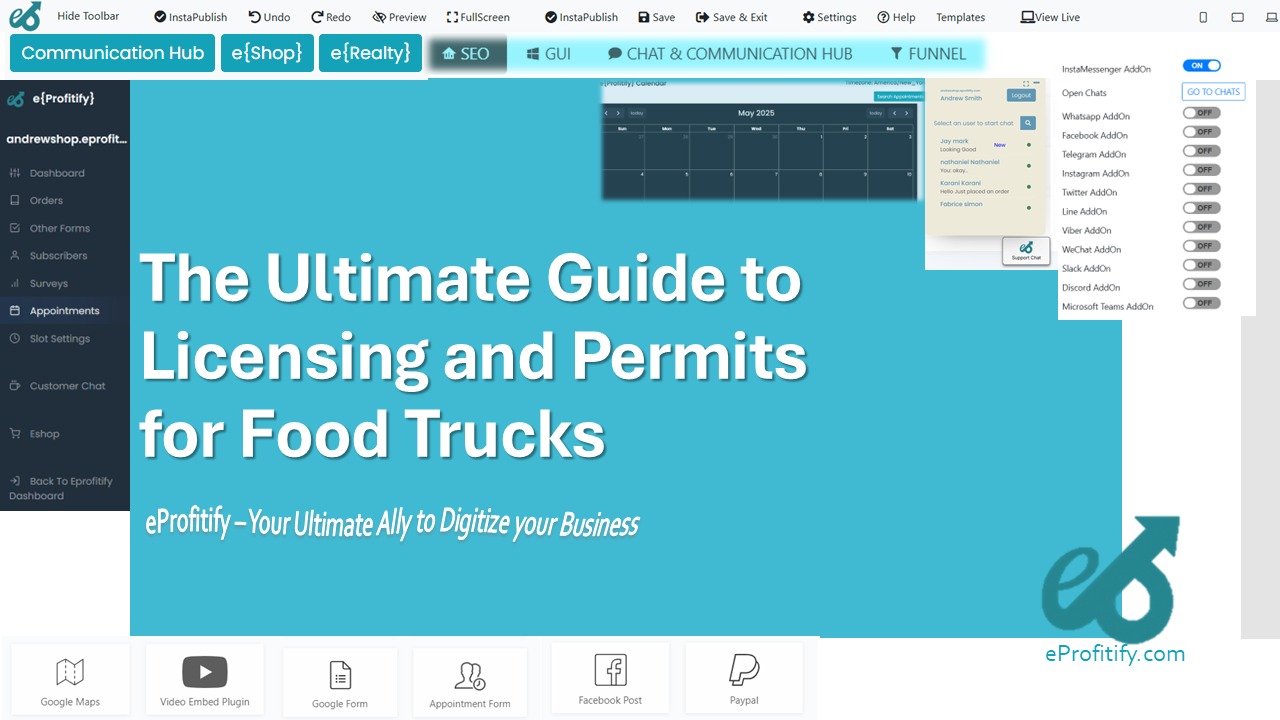
Schedule a LIVE Zoom call with an eProfitify Expert.
The Ultimate Guide to Licensing and Permits for Food Trucks
The food truck industry has exploded in popularity over the last decade, offering entrepreneurs a low-cost entry into the culinary world. However, launching a successful food truck requires more than just delicious recipes and a flashy vehicle. Navigating the maze of licenses, permits, and regulations is critical to avoiding legal headaches and ensuring your business operates smoothly. In this guide, we’ll break down the essential licenses and permits you’ll need, share industry statistics, and highlight how tools like eProfitify—a leading website publishing and management platform—can streamline your operations.
Why Licensing and Permits Matter
Food trucks must comply with federal, state, and local regulations to ensure public safety and fair business practices. According to a 2023 report by the National Food Truck Association (NFTA), 35% of food truck failures in their first year are linked to non-compliance with permits or health codes. With the industry generating over $2.7 billion in annual revenue (IBISWorld, 2023), competition is fierce, and cutting corners isn’t an option.
Essential Licenses and Permits for Food Trucks
1. Business License
A general business license is mandatory in most cities to legally operate any business. Fees vary by location, ranging from $50 to $500 annually. In addition, registering your business structure (LLC, sole proprietorship, etc.) ensures tax compliance and liability protection.
Statistic: 80% of food trucks register as LLCs for tax flexibility and asset protection (NFTA).
2. Food Handler’s Permit
All employees involved in food preparation must complete a food safety course certified by the Food and Drug Administration (FDA). Permits cost $50–$150 per person and are valid for 2–5 years, depending on your state.
3. Mobile Food Facility Permit
This permit, issued by your local health department, certifies that your truck meets hygiene and safety standards. Expect to pay $500–$2,000 annually, with rigorous inspections of equipment, storage, and waste disposal systems.
Statistic: Health department violations account for 22% of food truck closures (Food Safety Magazine, 2023).
4. Parking and Vending Permits
Cities often restrict where food trucks can operate. A parking permit ($100–$1,000/year) allows vending in designated zones, while event-specific permits might be needed for festivals. For example, Los Angeles charges $541 annually for a sidewalk vending permit.
5. Fire Safety Certificate
Fire departments inspect food trucks for propane, grease, and electrical hazards. Costs range from $50–$300, with recurring annual inspections.
6. Sales Tax Permit
Required to collect and remit sales tax, this permit is free but mandatory. Late filings can incur penalties of up to 25% of owed taxes (IRS).
Special Considerations
- Zoning Laws: Some areas ban food trucks near brick-and-mortar restaurants. Research local ordinances before selecting a location.
- Commissary Agreements: Most states require food trucks to use a licensed commercial kitchen (commissary) for prep and storage. Lease costs average $500–$2,000/month.
- Insurance: General liability and vehicle insurance are non-negotiable. Policies start at $3,000 annually but protect against accidents, theft, and lawsuits.
Streamline Compliance with Technology
Managing permits, customer interactions, and daily operations is overwhelming without the right tools. This is where eProfitify shines. As a premier website publishing and management platform, eProfitify offers tailored solutions for food trucks:
- Instant Messaging: Communicate with customers in real-time to answer questions, share location updates, or promote daily specials.
- Appointment Management System: Schedule inspections, permit renewals, and event bookings seamlessly.
- Ecommerce Integration: Sell merchandise, gift cards, or pre-orders directly through your website.
- CRM Tools: Track customer preferences and send targeted promotions to boost loyalty.
- Document Storage: Keep permits, licenses, and insurance policies organized in a secure cloud-based system.
Statistic: Businesses using management software like eProfitify reduce administrative tasks by 40%, allowing more time for growth (Forbes, 2023).
Key Steps to Obtaining Permits
- Research Local Laws: Check city, county, and state requirements through government portals.
- Prepare Documentation: Gather proof of insurance, commissary contracts, and vehicle registrations.
- Submit Applications Early: Processing can take 4–8 weeks. Missing deadlines could delay your launch.
- Pass Inspections: Schedule health, fire, and vehicle inspections promptly.
- Stay Compliant: Renew permits on time and display them visibly in your truck.
Why Choose eProfitify?
eProfitify isn’t just a website builder—it’s a centralized hub for managing every facet of your food truck. For example:
- Use instant push notifications to alert customers when you’re nearby.
- Automate permit renewal reminders via the CRM’s calendar.
- Process online orders and payments securely, even during peak hours.
With affordable pricing and 24/7 support, eProfitify helps you focus on what matters: serving great food.
Conclusion
Licensing and permits are the backbone of a legitimate food truck business. While the process is complex, leveraging tools like eProfitify simplifies compliance and enhances customer engagement. By staying organized and proactive, you’ll avoid costly fines and build a brand that thrives in this booming industry.
Ready to launch your food truck? Start with the right permits—and let eProfitify handle the rest.


